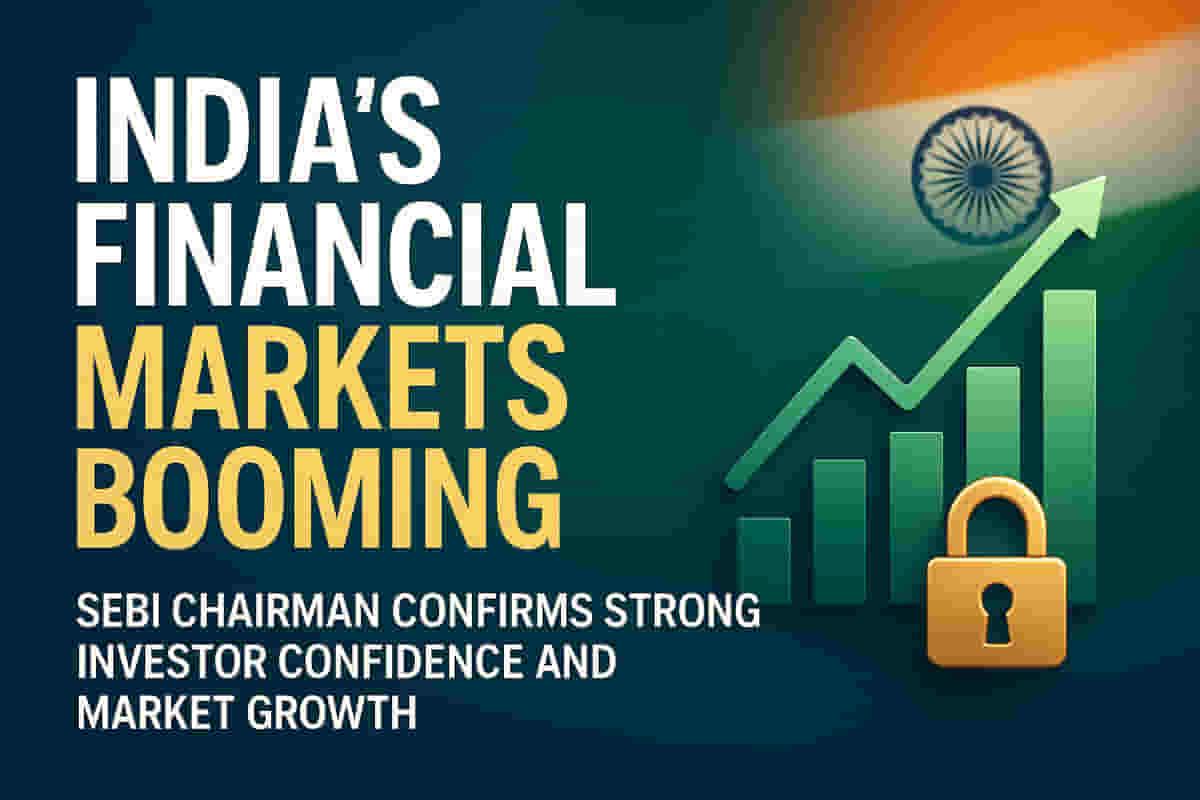Sebi Chairman Tuhin Kanta Pandey Highlights India's Deepening Financial Markets and Growing Investor Confidence
SEBI/Exchange
|
31st October 2025, 6:24 AM

▶
Short Description :
Detailed Coverage :
Securities and Exchange Board of India (Sebi) Chairman Tuhin Kanta Pandey expressed optimism about India's financial markets, noting their deepening with enhanced transparency and a significant rise in investor participation. He highlighted strong confidence from foreign investors, who are interested in both long-term and short-term investment opportunities in India. Pandey mentioned that India's price-to-earnings ratio is around its 10-year average, indicating a stable valuation. Sebi continues to focus on transparency, simplifying processes, and maintaining regulatory consistency, with minimum public shareholding norms remaining at 25 percent. A conflict of interest committee report is expected soon.
The mutual fund industry is poised to drive further market participation and encourage long-term investments, though the sector requires greater flexibility. Sebi is actively combating financial misinformation, having already removed over 100,000 misleading social media accounts and planning to address 5,000 more. The regulator is also strengthening oversight against cyber threats. Pandey confirmed that the long-awaited National Stock Exchange (NSE) IPO is anticipated and that Sebi has fully transitioned to a digital operational framework.
Pandey underscored the integral link between India's economic growth and the health of its financial markets, which include banking, capital markets, insurance, and pensions. Investor participation has surged from 40 million in FY19 to over 135 million, with market capitalization growing significantly relative to GDP, driven by technology access, financial awareness, and regulatory reforms.
Impact This news has a positive impact on the Indian stock market as it signals regulatory confidence, increased investor participation, and proactive measures against market risks. The positive sentiment from Sebi's chairman can encourage both domestic and foreign investment, supporting market stability and growth. Rating: 9/10.
Difficult Terms: Price-to-earnings (PE) ratio: A valuation metric that compares a company's stock price to its earnings per share. It helps investors understand how much they are paying for each dollar of a company's earnings. Minimum Public Shareholding (MPS): The minimum percentage of shares that must be held by the public, excluding the company's promoters. This ensures a certain level of public float. IPO: Initial Public Offering. It is the process by which a private company sells shares to the public for the first time. GDP: Gross Domestic Product. It is the total monetary value of all finished goods and services produced within a country's borders during a specific period. AI: Artificial Intelligence. It is the simulation of human intelligence in machines that are programmed to think like humans. Quantum readiness: The state of being prepared for the advent of quantum computing, which has the potential to revolutionize computing power and cybersecurity.